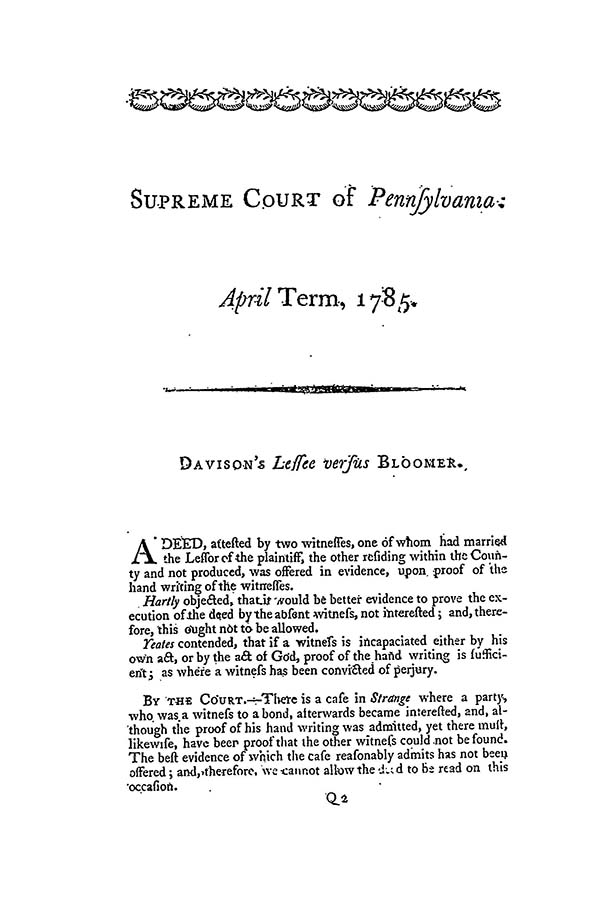Davison's Lessee v. Bloomer, 1 Dall. 123, 1 U.S. 123 (Pa. 1785)
Supreme Court of Pennsylvania
April Term, 1785
Davison's Lessee v. Bloomer.
A Deed, attested by two witnesses, one of whom had married the Lessor of the plaintiff, the other residing within the County and not produced, was offered in evidence, upon proof of the hand writing of the witnesses.
Hartly objected, that it would be better evidence to prove the execution of the deed by the absent witness, not interested; and, therefore, this ought not to be allowed.
Yeates contended, that if a witness is incapaciated either by his own act, or by the act of God, proof the hand writing is sufficiently as where a witness has been convicted of perjury.
By the Court.—There is a case in Strange where a party, who was a witness to a bond, afterwards became interested, and, although the proof of his hand writing was admitted, yet there must, likewise, have been proof that the other witness could not be found. The best evidence of which the case reasonably admits has not been offered; and, therefore, we cannot allow the deed to be read on this occasion.
Citation: Davison's Lessee v. Bloomer, 1 Dall. 123, 1 U.S. 123 (Pa. 1785)

Last modified: August 24, 2013